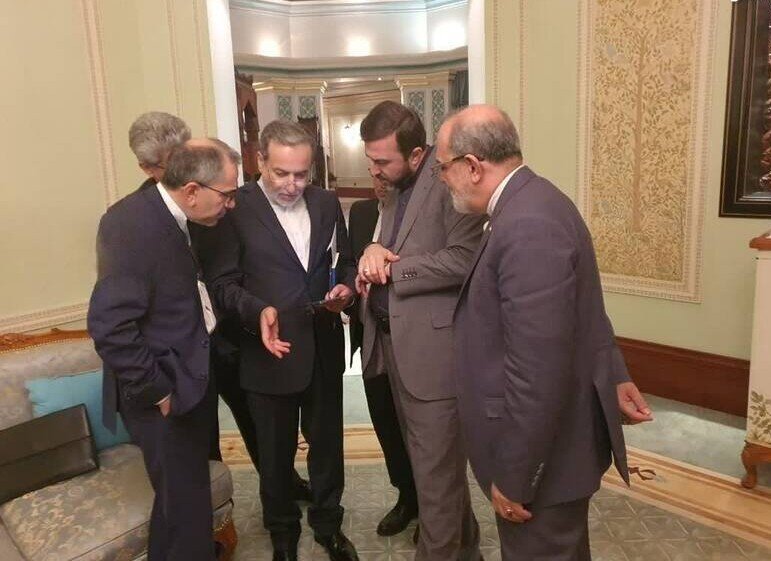A positive Muscat start, but will it end well?
Iran, US agree to hold second round of indirect talks in a few days

TEHRAN – Indirect Iran-U.S. talks mediated by Oman appear to have concluded on a positive note Saturday, as the two sides agreed to schedule a second round for next week, though analysts caution that the path to any meaningful breakthrough remains long and fraught with challenges.
Iran's foreign ministry characterized the indirect discussions with the U.S. in Oman as "constructive" and generally "positive" in a statement released shortly after the talks concluded. The discussions centered on Iran's nuclear program and Washington’s sanctions against the country.
Emphasizing the indirect nature of the talks, the statement noted that the Iranian and American delegations were situated in separate halls for the two-and-a-half-hour negotiation, communicating through written messages. At the end of the session, Iran's Foreign Minister Seyyed Abbas Araghchi and U.S. Special Envoy to West Asia Steve Witkoff had a brief face-to-face encounter and “exchanged greetings out of courtesy” as they departed.
Tehran had said prior to the negotiations that it is willing to give diplomacy a "genuine chance," but that requires Washington to also demonstrate a sincere commitment to clearing the hurdles. A source familiar with the matter told the Tehran Times that Iran is serious about striking an agreement but won’t let the other side cross any of its red lines.
Witkoff, speaking to NBC, also said that Iran and the U.S. had managed to hold positive and constructive dialogue.
The talks followed a letter delivered last month in which U.S. President Donald Trump offered to limit discussions to Iran's nuclear program, excluding its military and foreign policy, if Tehran agreed to enter negotiations. This marked a shift, as it was the first time Trump expressed a willingness to limit discussions to Iran's nuclear program since unraveling the 2015 Joint Comprehensive Plan of Action (JCPOA) during his first term. After withdrawing from the JCPOA in 2018, Trump imposed stringent sanctions on Tehran, hoping to force it to make further concessions, particularly regarding its missile and drone program and its ties with regional Resistance forces in West Asia.
In comments broadcast on Iranian national television, Araghchi stated that the upcoming round would focus on the "format" of the negotiations. "During this round, we were able to reach agreements on the content of the talks," he explained. "If we finalize the content next week, we will then be in a position to determine the format as well."
The foreign minister further emphasized that Iran seeks a real agreement and wishes to avoid a "destructive" phase of negotiations. "However," he cautioned, "this will not be easy. Both sides must demonstrate seriousness and resolve."
Araghchi's assessment of the Oman talks, while not pessimistic, also lacked outright enthusiasm. Wendy Sherman, former U.S. deputy secretary of state and chief negotiator who negotiated with Araghchi during the Obama administration, has characterized him as "a tough and intelligent person," adding to American media that "Witkoff is facing a tough competitor."
Analysts are also hesitant to draw definitive conclusions, citing Washington's past record of broken agreements and withdrawn commitments.
"The U.S.'s agreement to indirect talks, despite initially preferring direct negotiations, and its acceptance of Oman as mediator after seeking a UAE role, suggests a temporary departure from its previous intransigence," noted Amir Ali Abolfath, an expert on North American affairs. "However, nothing is guaranteed. We need to see if the U.S. will maintain this course or abruptly change direction."
Leave a Comment